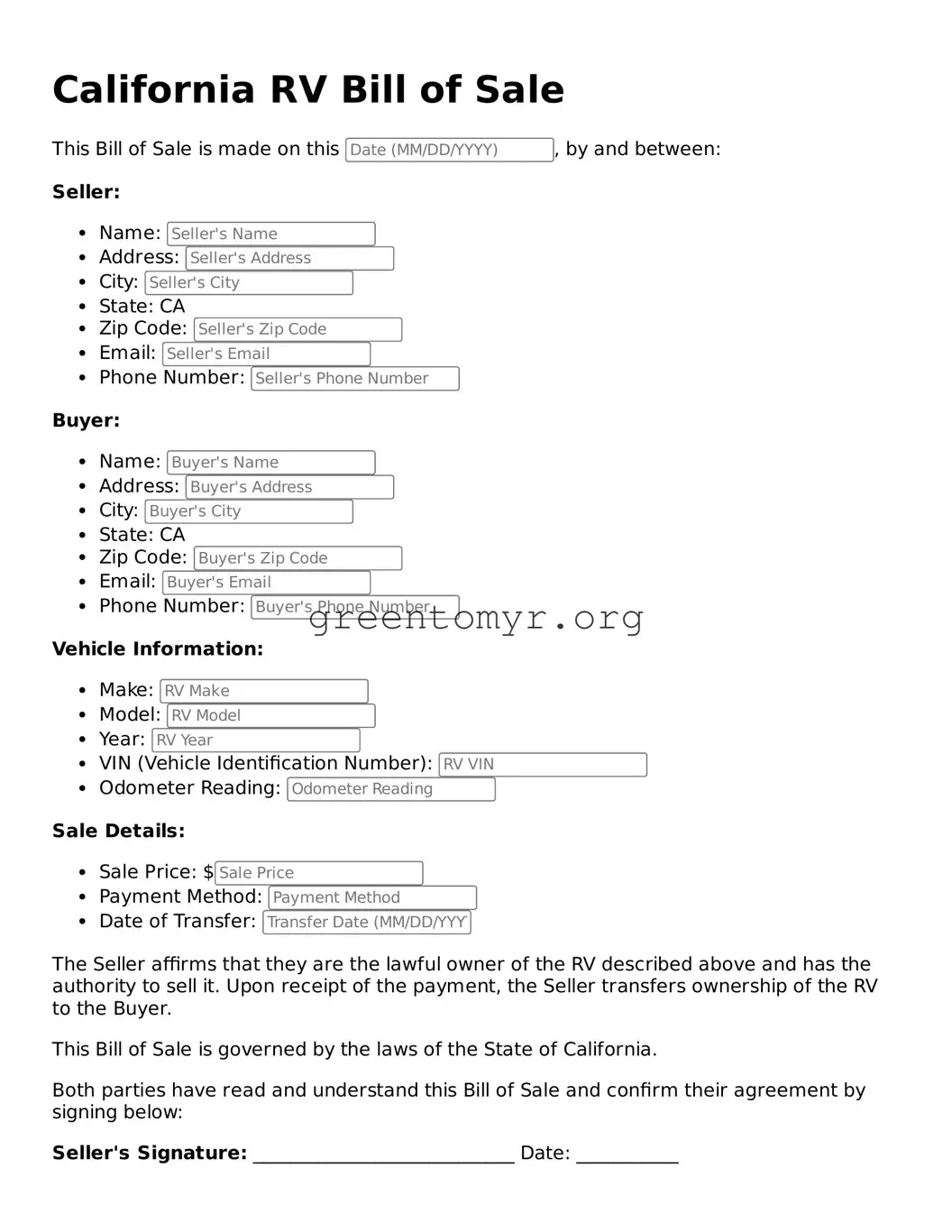What is a California RV Bill of Sale?
A California RV Bill of Sale is a legal document that records the sale of a recreational vehicle. This form outlines details of the transaction, including the buyer, seller, RV specifics, and the agreed price. It serves as proof of the ownership transfer from the seller to the buyer.
Why do I need a Bill of Sale for my RV?
The Bill of Sale provides important protection for both the buyer and the seller. For the buyer, it acts as proof of purchase, helping to establish ownership and avoid disputes. For the seller, it can serve as evidence that the vehicle was sold and that they are no longer responsible for it, especially in terms of registration and liability issues.
The RV Bill of Sale should include the following details:
-
Full names and addresses of both the buyer and seller
-
Make, model, year, and Vehicle Identification Number (VIN) of the RV
-
Date of the transaction
-
Sale price
-
Signatures of both the buyer and seller
Is the Bill of Sale required to register my RV in California?
Yes, the Bill of Sale is often required when registering an RV in California. The Department of Motor Vehicles (DMV) typically requests this document as part of the registration process to confirm the change of ownership.
What if the RV has a lien on it?
If the RV has an outstanding lien, it is crucial to resolve this before completing the sale. Ensure that the lienholder releases the lien and provides written documentation. The Bill of Sale should reflect that the RV is being sold free of liens, or at least state any existing lien information.
Can I create my own Bill of Sale?
Yes, you can create your own Bill of Sale as long as it includes all the necessary information. However, using a standard template can ensure that you cover all important aspects and comply with state requirements.
What if I lose the Bill of Sale?
Losing the Bill of Sale can complicate matters. If you are the seller and you lose your copy, consider communicating with the buyer to issue a new Bill of Sale, or obtaining a sworn statement confirming the sale if necessary. Keep a copy of all paperwork to prevent future issues.
Do I need a notary to sign the Bill of Sale?
In California, notarization is not typically required for a Bill of Sale. However, having it notarized can add an extra layer of protection and authenticity to the document. This may be useful if disputes arise in the future.
What are the consequences of not having a Bill of Sale?
Not having a Bill of Sale can lead to ownership disputes and issues during registration. Without this document, proving ownership may become increasingly difficult, which can lead to legal complications down the line for both the buyer and seller.
You can find a California RV Bill of Sale form online through various legal websites, the DMV website, or you may also draft your own using templates available for download. Always ensure that the form you are using complies with California state guidelines.
